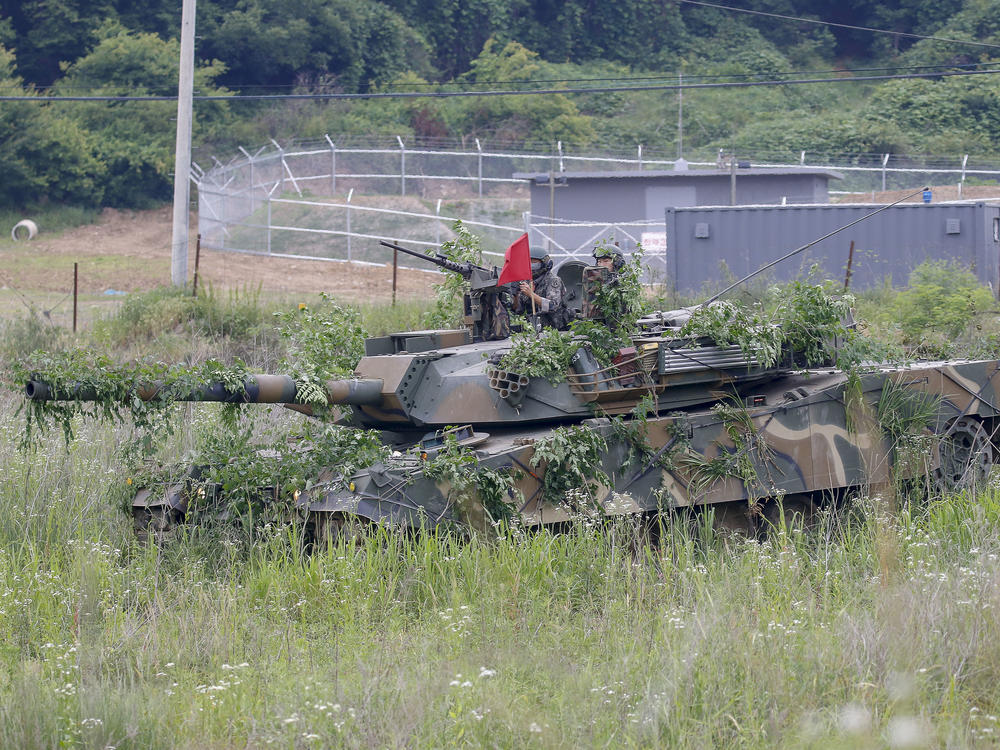Section Branding
Header Content
Seoul Agrees To Pay More For U.S. Forces Stationed In South Korea
Primary Content
SEOUL — The U.S. and South Korea struck a preliminary deal to share defense costs, as the Biden administration moves to quickly reassure allies and mend rifts opened by the Trump administration.
The U.S. agreement in principle follows a one-year deal recently struck with Japan, where the U.S. has some 55,000 military personnel. Both deals come less than two months into the new U.S. administration.
The deal is expected to cover several years, in order to give the alliance more stability, and be finalized when Secretary of State Antony Blinken and Defense Secretary Lloyd Austin embark on a tour this month to reassure allies in Seoul and Tokyo.
The U.S. State Department Bureau of Political Military affairs said the agreement in principle included a "negotiated increase" in Seoul's contribution to the cost of stationing some 28,500 American troops in South Korea, although it didn't specify the amount of the increase.
In 2019, South Korea agreed to an 8.2% increase in its contribution, in line with that year's increase in its military budget. Last year, it said its best offer was a 13% hike, which the Trump administration rejected.
The finalized deal will require approval by the National Assembly, South Korea's parliament.
The State Department added that the deal would reaffirm the U.S.-South Korea alliance as the "linchpin of peace, security, and prosperity for Northeast Asia."
The rift grew out of the Trump administration's reported demand for a 500% increase in Seoul's contribution. The demand led to an impasse in cost sharing talks, after the previous deal expired in late 2019.
This forced the U.S. side to furlough some 4,000 local Korean employees without pay for more than two months. Gen. Robert Abrams, the commander of U.S. Forces Korea said the furloughs eroded military preparedness.
This led many in Seoul to feel that they were being fleeced, and that U.S. forces in South Korea could have been withdrawn if U.S. demands were not met, leaving the South to face a hostile North Korea alone.
The situation has been particularly disturbing for South Korean veterans who have served with the U.S. The two countries' armies fought together in Korea and Vietnam, and still serve together in South Korea in a combined unit, the US 2nd Infantry Division.
While former President Trump railed at Seoul, Tokyo and NATO allies as wealthy "freeloaders," the Biden administration has signaled that it intends to rely heavily on alliances to counter potential threats from North Korea, China and Russia.
While defense cost sharing deals may remove a major irritant to the alliance, it remains to be seen to what extent the Biden administration can enlist Seoul and Tokyo in confronting China, which is a top trading partner to all three nations.
By the same token, the Biden administration faces an uphill battle in trying to coax Seoul and Tokyo into shelving their long-running feud over historical issues, including Japan's 1910-1945 colonization of Korea, and presenting a united front to Pyongyang, Beijing and Moscow.
Copyright 2021 NPR. To see more, visit https://www.npr.org.

